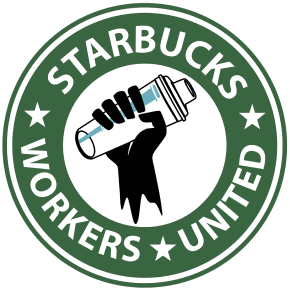The dust has yet to settle in the wake of the union election loss in Bessemer, Alabama, but the flurry of opinions about the future of organized labor keeps growing. Major news outlets that previously fawned over the workers there have quickly shifted gears to present a more doom-and-gloom reality, highlighting the labor movement’s general lack of success in past elections certified by the National Labor Relations Board (NLRB) and implying that the generous benefits Amazon already offered workers were the main reason for the defeat. The real answer as to why the Retail, Wholesale and Department Store Union (RWDSU) lost this fight is much more complex than these tidy narratives.
Was the Labor Movement “Defeated?”
The national focus on a single union election makes it easy for the media to blow these results out of proportion. Analyses of the mistakes that were made in organizing the Amazon campaign coupled with the company’s gross malfeasances will ensure continued interest in the story for the months to come. But during just the last two weeks, as the NLRB tallied the 2,536 ballots cast in Bessemer, approximately 1,996 workers around the country have successfully unionized. From stagehands in Portland to marijuana workers in Rhode Island, workers came together with the Teamsters, the Steelworkers, the United Auto Workers (UAW), the International Longshore and Warehouse Union (ILWU), and a plethora of other labor organizations, and won representation.
All of these elections were much smaller than what we saw in Bessemer. Most ranged from several hundred votes to less than 10, and some of the counting efforts even dragged on for months. But the lack of public awareness about many of these campaigns points to how the media and many in the labor movement sometimes miss the forest for the trees. Case in point, there is an ongoing election in Maine in which 1,900 nurses are deciding whether or not to unionize, and their struggle has received little national attention even as the fight has picked up intensity.
Many outlets have called this election loss the most consequential labor battle in decades, insinuating that it will have a lasting negative impact on organized labor as a whole. As the numbers show, this is technically not the case. Workers are still organizing, support for unions has never been higher, and at the end of the day, one loss is still just one loss. The RWDSU will certainly continue to file numerous grievances with the NLRB, and it could petition for another election next year per National Labor Relations Act (NLRA) rules.
Even with the NLRB as toothless as it’s been in recent years, workers continue to win elections. Successes have also become more likely, as the board moves under solid democratic control, reinstates quickie elections, and rebuilds the capacity for regional boards to respond to grievances faster.
Don’t Gloss Over the Facts
Union leaders have silver-lined the Amazon loss as the vanguard of a new wave of organizing. Richard Trumka, president of the AFL-CIO, spoke recently about the Amazon fight being the first of many battles against larger corporations but didn’t offer much concrete info on how future campaigns could be more successful. It was also strange to hear Trumka, whose organization backed the RWDSU during their campaign, constantly refer to workers as weak when he stressed the need for new workers’ rights laws like the PRO Act. On the contrary, workers really are and have always been powerful despite weak labor laws in the US. Richard Bensinger, former AFL-CIO organizing director who is currently advising workers at other Amazon facilities, offered a more tempered but still positive response. “The Amazon warehouses I am working with now are mostly inspired by Alabama,” he said, while also acknowledging that the COVID-19 pandemic has made organizing harder. “We have won a few campaigns during the pandemic, but in spite of it, not because of it.”
The loss in Alabama seems to have inspired other workers around the country to start their own campaigns, but it’s important to acknowledge that the organizers in Bessemer made what some labor leaders are portraying as critical blunders. Jane McAlevey’s recent article offers the best analysis of the mistakes made by RWDSU during their campaign and helps explain how social media campaigns and celebrity shout-outs can’t replace grassroots organizing. Many of the errors McAlevey examined highlight the importance of building worker-power and illustrate what happens when shortcuts are taken. A key takeaway for organizers might be to learn how to convert a “hot-shop”—a term for a workplace that is showing significant interest—into a stalwart group led by workers and not union staff. Another could be how to use new digital strategies as an effective supplement to traditional organizing methodologies.
Moving Forward
If anything, the Amazon fight should spur workers to continue to press for more rights. Dawn Tefft, an organizer for EWOC concurs, “while various groups of Amazon workers continue to organize now and in the future, they, as well as those of us at EWOC who also assist non-unionized workers, can learn from the most recent attempt at unionization. Helping workers take action also signals to the boss that the workers are ready to do whatever’s necessary to win.” Organizers at EWOC have been offering a public organizer-training series for the past year. These trainings teach workers both how to organize during a pandemic (with remote and digital strategies) and tried-and-true, rank-and-file methods for building solidarity. EWOC has also recently published an organizing guide with a detailed step-by-step list that covers everything a worker-leader needs to know, from social mapping to inoculation tips.
In addition, EWOC will be hosting a lecture on rank-and-file unionism this coming week. In recent years, we’ve seen an uptick in this kind of organizing, which favors direct workplace actions led more directly by workers. These trainings echo a general principle at EWOC that mirrors what McAlevey pointed out in her article: that a union should not be construed as an outside entity or a “they,” but as the workers themselves.
Ready to get involved? Join the talk on rank-and-file unionism this Thursday, download the EWOC organizing guide, or talk to an EWOC organizer!




